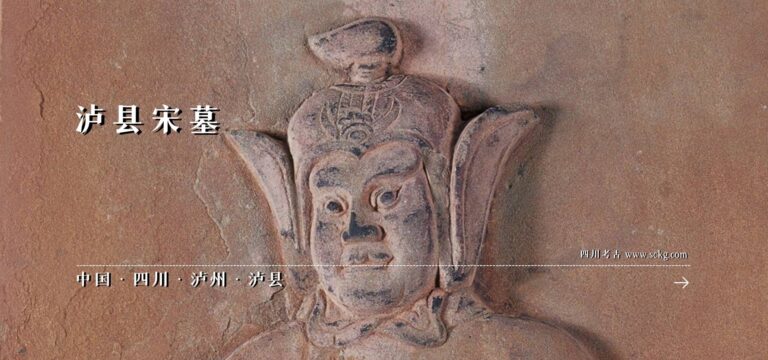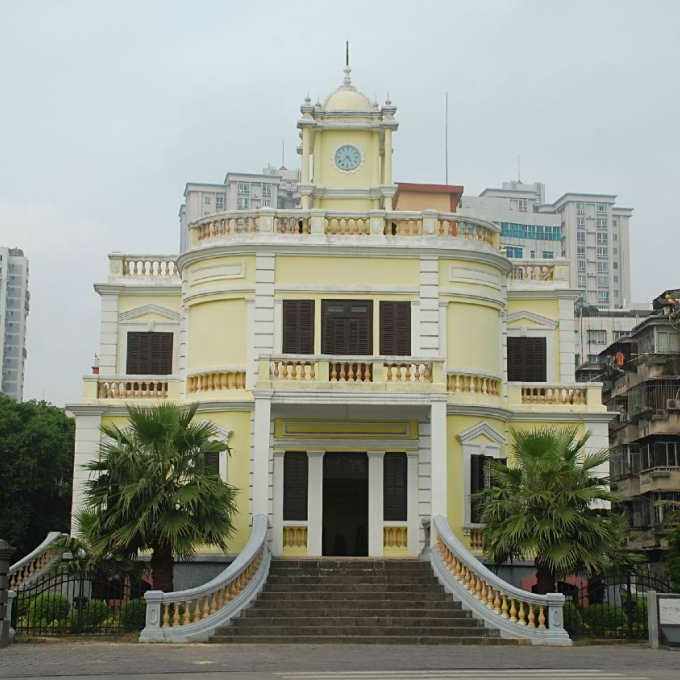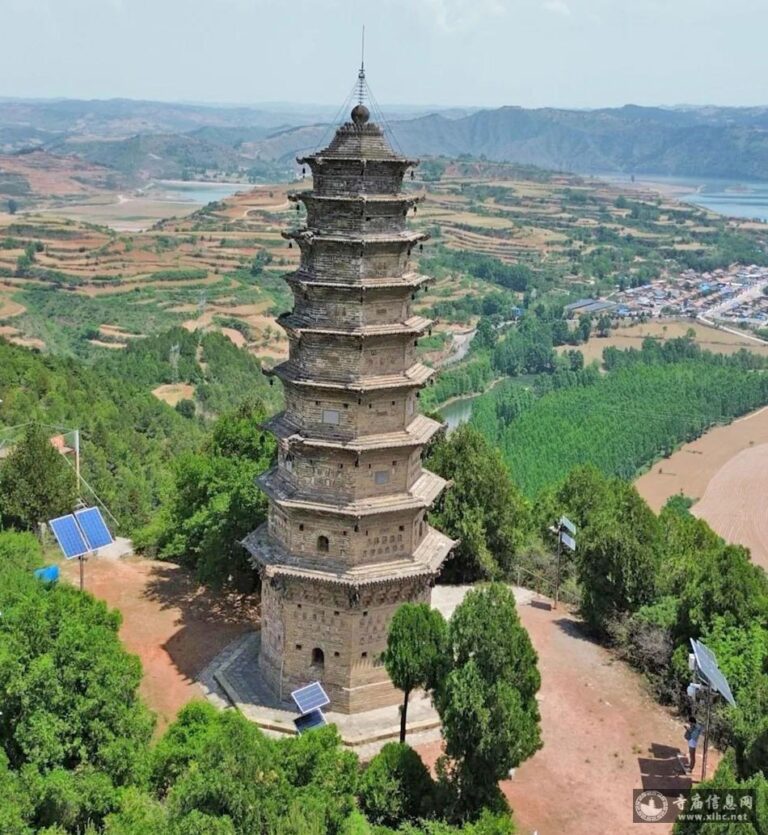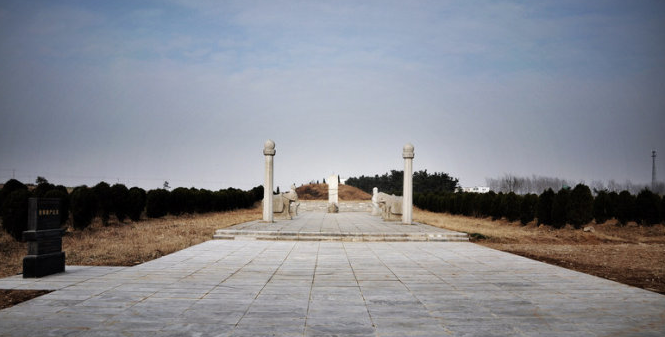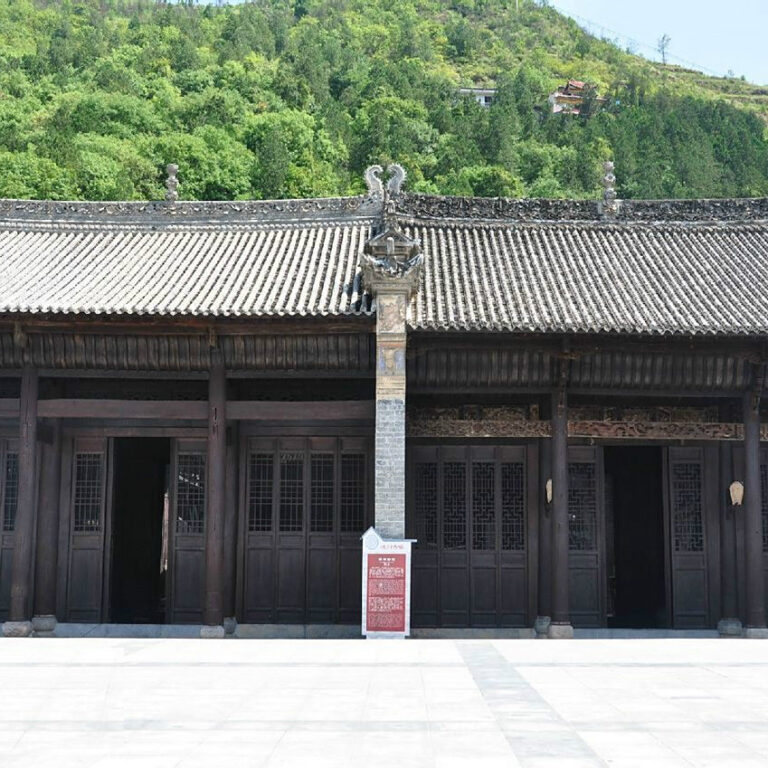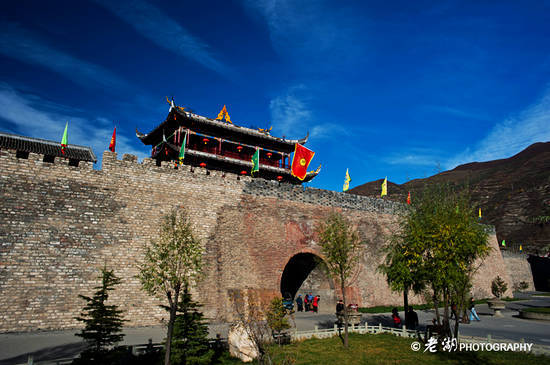Unveiling the Hidden Gems of Chizhou Jiuhuashan Qiyuansi: Your Ultimate Itinerary
An Essential Guide to Visiting Chizhou Jiuhuashan Qiyuansi
In This Guide
- An Essential Guide to Visiting Chizhou Jiuhuashan Qiyuansi
- The Rich History of Chizhou Jiuhuashan Qiyuansi
- Main Highlights: What to See at Chizhou Jiuhuashan Qiyuansi
- Planning Your Visit: A Practical Guide
- Tickets, Hours, and Booking
- How to Get There
- Local Cuisine and Accommodation
- Frequently Asked Questions
- Final Thoughts on Your Trip
Nestled in the heart of China’s Anhui province, Jiuhuashan Qiyuansi (祇园寺) is not just a temple; it is a spiritual sanctuary steeped in history and beauty. Known as one of the four major Buddhist monasteries on Jiuhua Mountain, this grand temple complex captivates visitors with its architectural splendor and tranquil atmosphere. Established during the Ming Dynasty (1522-1566), Qiyuansi is renowned for its unique design, featuring intricately carved stone paths adorned with coin reliefs that narrate the temple’s rich past.
The temple’s location, elegantly perched on the mountainside, offers stunning views and serves as a gateway for pilgrims and tourists alike. With its majestic halls, including the iconic Main Hall and the revered Lingguan Hall, Qiyuansi invites visitors to explore its sacred spaces, where the air is thick with the scent of incense and the sound of chanting resonates softly. Open daily from 7 AM to 8 PM, this site is not only a place for prayer and reflection but also a vibrant hub of cultural heritage, where the teachings of Buddhism come alive.
As you venture through its serene grounds, you will find the temple is more than just a historical monument; it is a living testament to the enduring spirit of faith and community. Whether you are seeking spiritual solace or simply wish to immerse yourself in the beauty of nature and history, Jiuhuashan Qiyuansi promises an unforgettable experience that offers a glimpse into the heart of Chinese Buddhism.
The Rich History of Chizhou Jiuhuashan Qiyuansi
Nestled in the picturesque setting of Mount Jiuhua in China’s Anhui Province, Qiyuansi Temple, also known as Zhi Yuan Temple, has a rich history that dates back to the Ming Dynasty. Established during the reign of Emperor Jiajing between 1522 and 1566, this temple was originally named Zhi Shu An (祗树庵), reflecting its tranquil surroundings and spiritual significance. Over the centuries, it has evolved into one of the four major Buddhist monasteries on Jiuhua Mountain, which is revered as one of the four sacred mountains of Chinese Buddhism, dedicated to the worship of Ksitigarbha Bodhisattva.
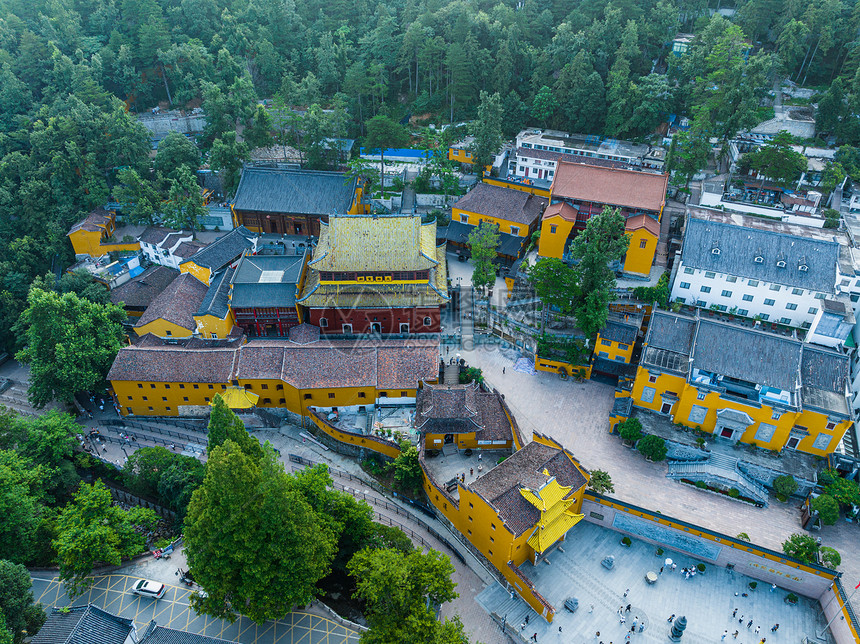
Chizhou Jiuhuashan Qiyuansi.
The temple’s architecture showcases traditional Chinese design, featuring a distinctive layout that follows a “7” shape, with a series of halls and quarters arranged in harmony with the mountain’s natural contours. Among its notable structures is the Lingguan Hall, adorned with intricate yellow tiles and flanked by characteristic horse-head walls, symbolizing the temple’s deep-rooted aesthetic and cultural values. The main hall, known as the Mahavira Hall, serves as a focal point for visitors and worshippers alike.
In the mid-Qing Dynasty, significant expansions were made to Qiyuansi, enhancing its stature as a major religious and cultural site. The temple became a crucial center for Buddhist learning and practice, attracting monks and laypeople from across the region. During this period, the temple was also recognized for its charitable contributions and community involvement, reflecting the compassionate spirit of Buddhism.
One of the temple’s most significant figures is Master Da Yuan, a monk who became its abbot in 2001. Under his leadership, Qiyuansi has undergone numerous renovations and restorations, adhering to the principle of preserving the temple’s historical integrity. These efforts have not only enhanced the temple’s physical structure but have also led to its designation as a key cultural relic protection unit in Anhui Province in 2004.
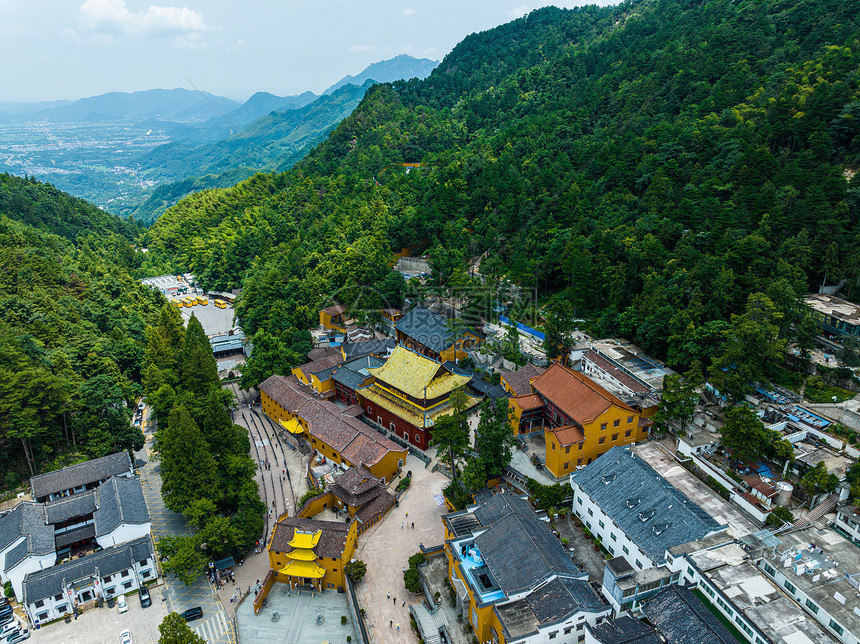
Chizhou Jiuhuashan Qiyuansi.
Today, Qiyuansi Temple stands as a testament to the enduring legacy of Chinese Buddhism, offering a serene retreat for spiritual reflection. It continues to play an essential role in promoting the teachings of Buddhism, fostering a sense of community, and preserving the cultural heritage of the region. Visitors to Jiuhua Mountain often find themselves captivated by the temple’s beauty and tranquility, making it an indispensable part of their journey through this sacred landscape.
Main Highlights: What to See at Chizhou Jiuhuashan Qiyuansi
Nestled in the picturesque Jiuhua Mountain region of Anhui Province, Qiyuansi (祇园寺), or the Qiyuan Temple, serves as a spiritual and architectural gem that attracts visitors from around the world. Here are the main highlights of this revered site:
Rich Historical Significance
Established during the Ming Dynasty between 1522 and 1566, Qiyuansi is one of the four major Buddhist temples on Jiuhua Mountain. Originally known as the Zhi Tree Hermitage, this temple has undergone significant expansion and renovation over the centuries, particularly during the Qing Dynasty. Its long history is evident in its architecture and the artifacts housed within.
Architectural Marvel
The temple’s striking design features a blend of traditional Chinese architectural styles, with a layout that follows a unique “7” shape. Visitors will be mesmerized by the intricate carvings and the impressive three-tiered roof of the Lingguan Hall, which is adorned with vibrant yellow and green glazed tiles. The temple’s atmosphere is enhanced by the stone pathways lined with coin engravings, adding to its charm.
Spiritual Hub
Qiyuansi is not just an architectural marvel but also a significant spiritual site. It is known for its peaceful ambiance, making it an ideal place for meditation and reflection. The temple houses numerous statues and relics, including the revered figure of Ksitigarbha Bodhisattva, attracting pilgrims and tourists alike who come to pay their respects and seek blessings.
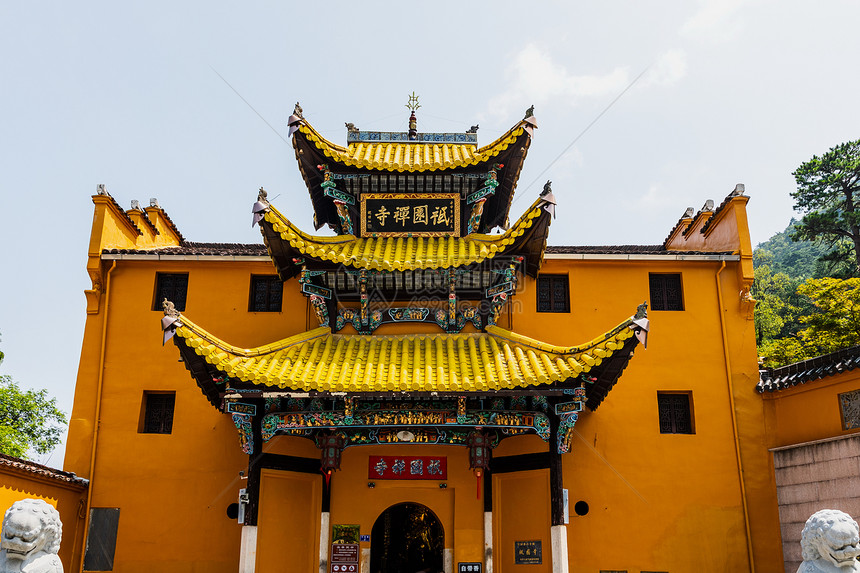
Chizhou Jiuhuashan Qiyuansi.
Culinary Delights
The temple is renowned for its vegetarian cuisine, offering delicious meals prepared daily. Visitors are encouraged to arrive early during meal times to enjoy these culinary offerings, as the demand can often exceed supply.
Scenic Surroundings
Situated on the mountainside, Qiyuansi provides breathtaking views of the surrounding natural landscape. The area is characterized by lush greenery and serene vistas, making it a perfect spot for leisurely walks and photography. The nearby Huatai Scenic Area, famous for its stunning views, is easily accessible from the temple.
Visitor Information
Qiyuansi is open to the public from 7:00 AM to 8:00 PM, allowing ample time for exploration. The entrance is conveniently located near the Jiuhua Mountain ticket booth, making it a must-visit for anyone traveling to this sacred region.
As you explore the serene halls and beautiful grounds of Qiyuansi, you will not only appreciate its historical and architectural grandeur but also connect with the profound spiritual essence that this temple embodies. Whether you are a devout pilgrim or a curious traveler, Qiyuansi invites you to experience its unique charm and tranquility.
Planning Your Visit: A Practical Guide
Practical Guide to Chizhou Jiuhuashan Qiyuansi (九华山祇园寺)
Nestled in the scenic Jiuhua Mountain area of Chizhou, Anhui Province, Qiyuansi (also known as the Qiyuan Temple) is a must-visit for those seeking tranquility and spirituality. As one of the four major Buddhist monasteries on Jiuhua Mountain, this temple offers a unique blend of rich history and serene natural beauty.
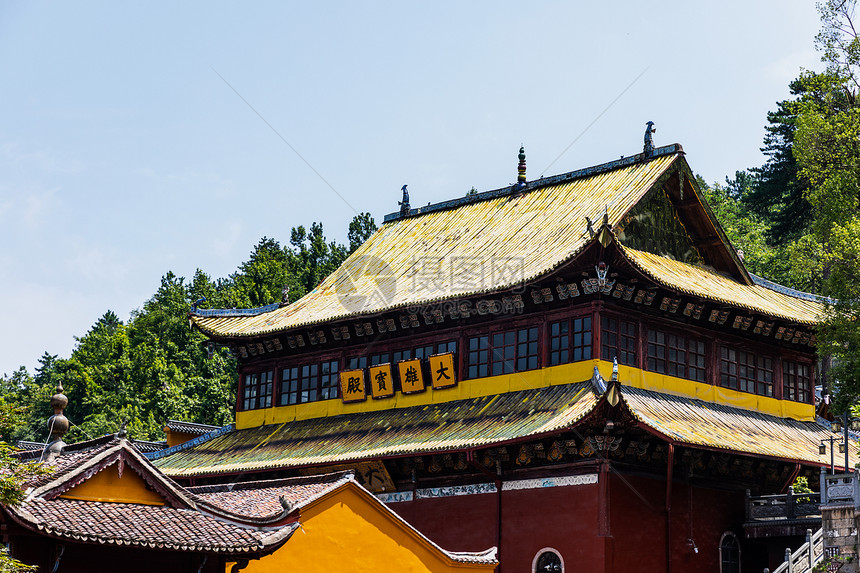
Chizhou Jiuhuashan Qiyuansi.
Location and Accessibility
Qiyuansi is located at 1 Furong Road, Jiuhua Mountain Scenic Area, Qinyang County, Chizhou City. It’s approximately 50 kilometers southeast of Chizhou city center. The temple is conveniently situated near the entrance ticket booth of the Jiuhua Mountain area, making it easily accessible for visitors.
Opening Hours
The temple is open daily from 7:00 AM to 8:00 PM. It’s advisable to visit early in the morning to enjoy a quieter atmosphere and the beautiful morning light.
Admission Fees
Tickets for Qiyuansi are included in the general admission fee for the Jiuhua Mountain Scenic Area. Prices typically start at 160 CNY, but it’s wise to check for any discounts or special group rates that may apply.
What to Expect
Architectural Marvel: Qiyuansi is renowned for its grand architecture, which dates back to the Ming Dynasty (1522-1566). The temple features intricate stone carvings along the paths and an impressive layout that includes multiple halls like the majestic Daxiong Baodian (Hall of Great Hero).
Culinary Delights: Be sure to indulge in the vegetarian meals served at the temple. The meals are fresh, delicious, and prepared according to Buddhist principles. Arrive slightly before meal times to ensure you get a spot, as it can get crowded.
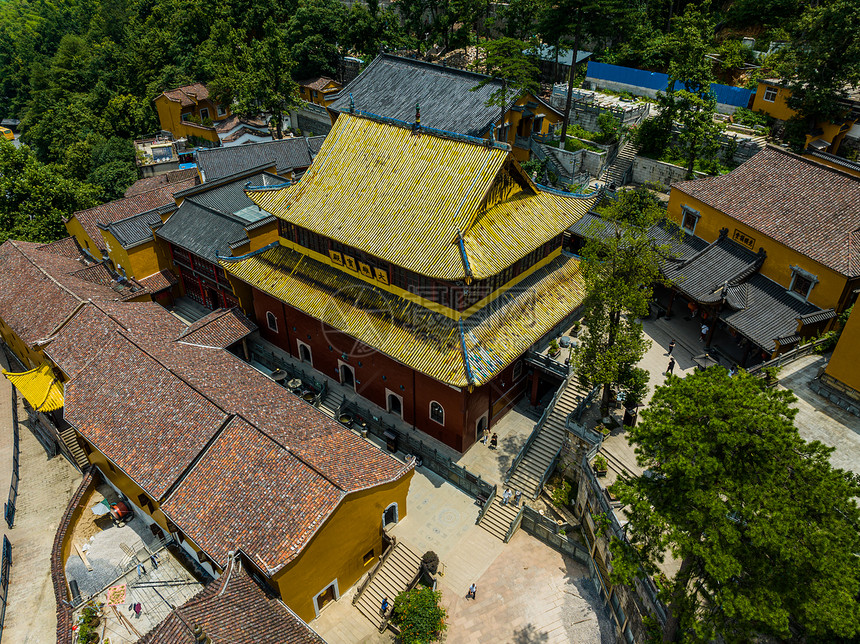
Chizhou Jiuhuashan Qiyuansi.
Cultural Significance: Qiyuansi is an active place of worship, and visitors are encouraged to respect the local customs. You can witness various rituals and ceremonies, making it a deeply spiritual experience.
Photography Opportunities: The temple’s unique architecture and the surrounding natural landscapes provide stunning backdrops for photography. Don’t miss capturing the intricate details of the temple and the scenic views of Jiuhua Mountain.
Nearby Attractions
While visiting Qiyuansi, consider exploring these nearby sites that are also part of the Jiuhua Mountain Scenic Area:
- Huacheng Temple: A historical site known for its serene atmosphere and beautiful gardens.
- Meili Hall: Home to significant Buddhist relics and art.
- Baisheng Hall: Offers breathtaking views over the surrounding mountains.
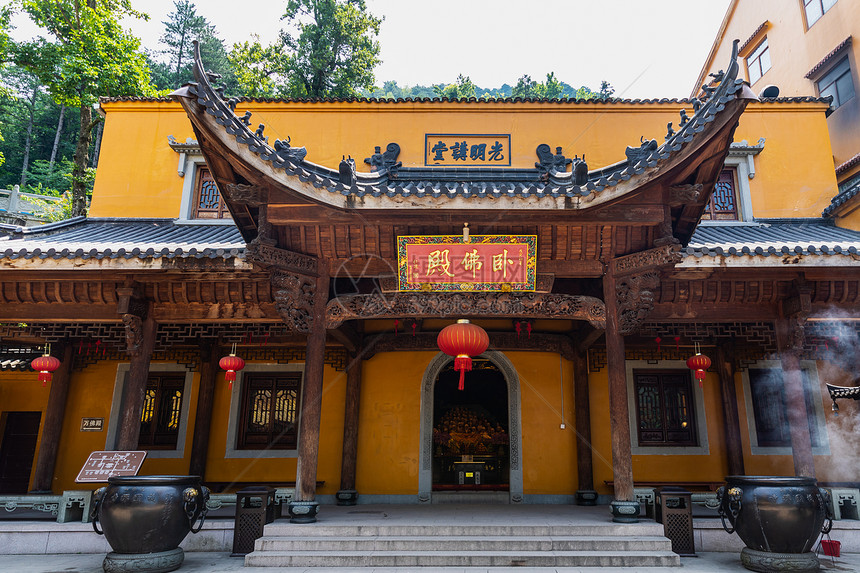
Chizhou Jiuhuashan Qiyuansi.
Tips for Visitors
- Dress Appropriately: As a place of worship, modest attire is encouraged. Ensure your shoulders and knees are covered.
- Stay Hydrated: Bring water, especially if you plan to hike around the temple grounds.
- Respectfulness: Be mindful of the local customs and the serenity of the temple environment. Maintain silence in prayer areas.
- Plan for Weather: The mountain weather can change rapidly, so check the forecast and dress in layers.
Getting There
Most visitors arrive via public transportation from Chizhou or nearby cities. Buses frequently run to Jiuhua Mountain. For those driving, there are parking facilities available near the entrance of the scenic area.
Visiting Qiyuansi at Jiuhua Mountain is not just a trip to a temple; it’s an opportunity to immerse yourself in the rich history and spiritual ambiance of one of China’s revered Buddhist sites. Whether you’re seeking enlightenment or simply a peaceful escape, this temple will leave a lasting impression.
Tickets, Hours, and Booking
When planning a visit to the serene and historic Qiyuansi Temple (祇园寺) at Jiuhuashan, it’s essential to know the ticketing details to ensure a smooth experience.
Ticket Information for Qiyuansi Temple
Entry Fee
The standard admission fee for Qiyuansi Temple is approximately RMB 160. This fee grants you access to the temple and its magnificent grounds, where you can immerse yourself in the tranquil atmosphere and the rich cultural heritage of this significant Buddhist site.
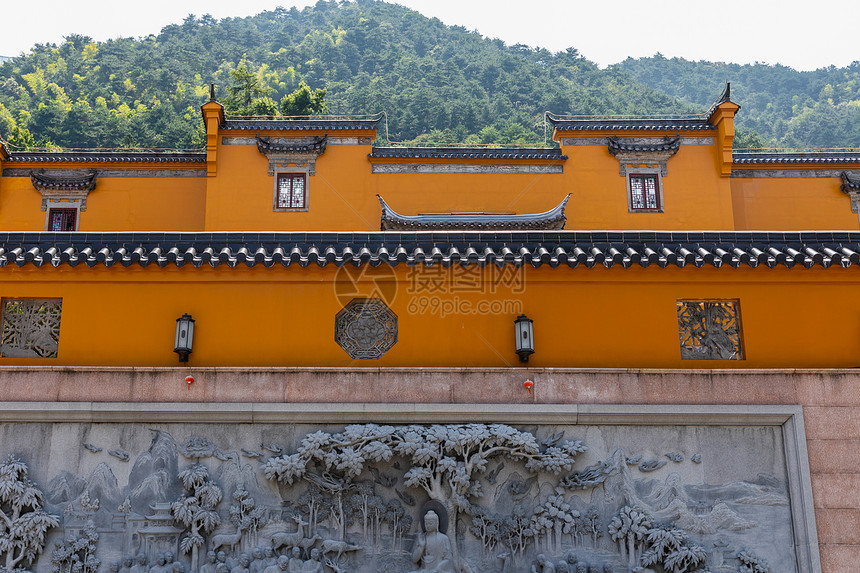
Chizhou Jiuhuashan Qiyuansi.
Operating Hours
The temple is open daily from 7:00 AM to 8:00 PM, allowing ample time for visitors to explore its various halls and areas of interest, including the notable Daxiongbaodian (Great Hall of the Buddha) and the scenic paths that wind around the temple complex.
Discounts and Group Rates
For those traveling in groups, it may be beneficial to inquire about group ticket discounts, which can make your visit more economical. Additionally, special rates may apply for students, seniors, or other specific demographics, so be sure to check for any applicable discounts when purchasing your tickets.
Booking Options
Tickets can typically be purchased on-site at the entrance of Qiyuansi Temple. However, during peak tourist seasons, it’s advisable to arrive early to avoid long queues. Alternatively, online booking options may be available through various travel platforms, allowing you to secure your tickets in advance.
Additional Tips
– Plan Your Visit: Given the temple’s popularity, consider visiting during weekdays or off-peak hours for a more peaceful experience.
– Explore Nearby Attractions: Qiyuansi Temple is just one of several significant religious sites in Jiuhuashan. Allocate time to visit other temples such as Huacheng Temple and the renowned Shiziming Temple to enhance your spiritual journey.
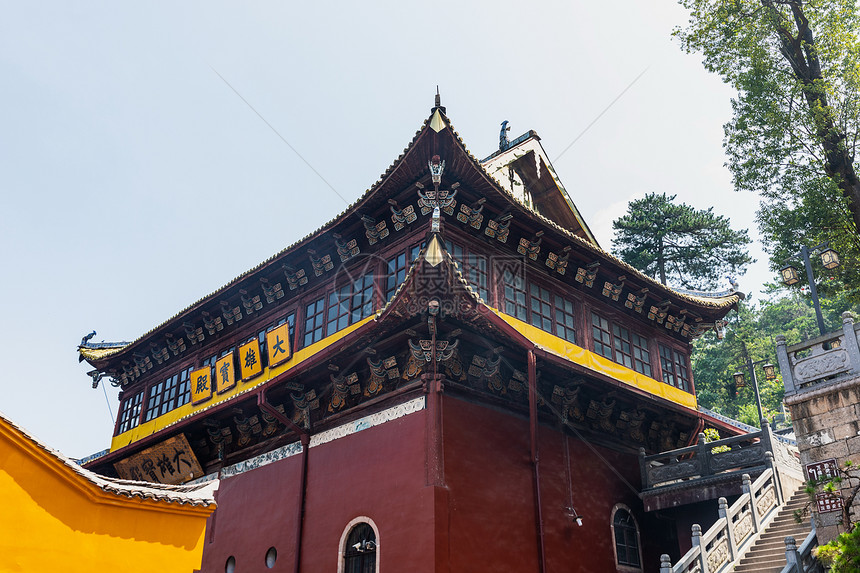
Chizhou Jiuhuashan Qiyuansi.
Visiting Qiyuansi Temple offers a unique opportunity to connect with Chinese Buddhist culture while enjoying the stunning natural surroundings of Jiuhuashan. Make sure to check the latest information and plan accordingly for a fulfilling experience.
How to Get There
Getting to Chizhou Jiuhuashan Qiyuansi (九华山祇园寺) is an essential part of your visit to this serene Buddhist site nestled in the stunning landscapes of Anhui Province, China. The temple is located approximately 50 kilometers southeast of Chizhou City, making it easily accessible for both domestic and international travelers.
By Air
The nearest major airport is Chizhou Jiuhuashan Airport (JUH), which offers flights from several key cities in China. Once you arrive at the airport, you can take a taxi or arrange for a ride through your hotel to get to Jiuhuashan, which is about a 30-minute drive away.
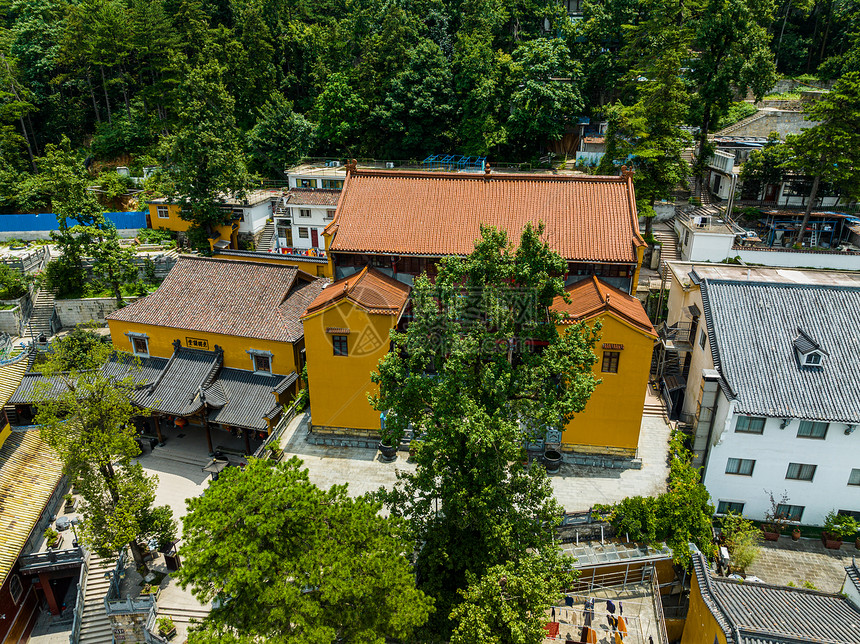
Chizhou Jiuhuashan Qiyuansi.
By Train
Chizhou has a railway station that connects with various major cities, including Shanghai, Nanjing, and Hefei. If you’re traveling from larger urban centers, the train is a convenient option. From Chizhou Railway Station, you can take a taxi to Jiuhuashan, which is around 15 kilometers away (approximately a 20-minute ride).
By Bus
For those traveling from nearby cities, long-distance buses frequently run to Jiuhuashan. Buses depart from the Chizhou Long-distance Bus Station and several other regional stations. The journey usually takes about an hour, and tickets can be purchased on-site or through local travel agencies.
Local Transportation
Once you arrive at Jiuhuashan, local transportation options include:
– Walking: The area around Qiyuansi is pedestrian-friendly, with well-marked paths leading visitors to various attractions.
– Electric Buses: There are electric buses operating within the scenic area, which can take you to different temples and viewpoints, including Qiyuansi, ensuring a comfortable exploration of the mountain’s spiritual sites.
– Cable Car: If you want to enjoy the stunning mountain views without the hike, consider taking the cable car that ascends to higher altitudes around Jiuhuashan.
Parking
If you’re driving to Jiuhuashan, there are designated parking areas available near the entrance. However, it’s advisable to arrive early during peak seasons to secure a parking spot.
Accessibility
Jiuhuashan aims to be accessible for all visitors. Pathways and transportation services are designed to accommodate those with mobility challenges. However, some areas may still present difficulties due to the mountainous terrain, so planning ahead is recommended.
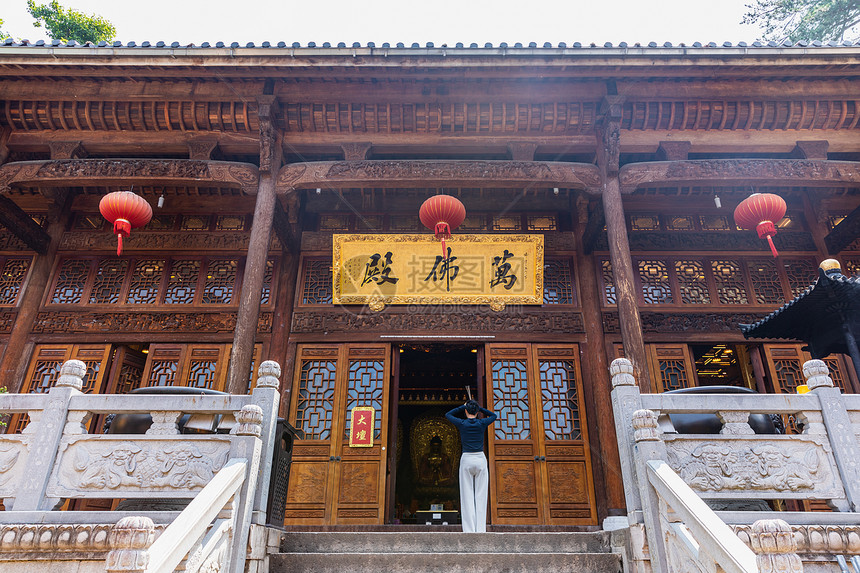
Chizhou Jiuhuashan Qiyuansi.
Conclusion
Whether you choose to fly, take a train, or travel by bus, reaching Chizhou Jiuhuashan Qiyuansi is straightforward. With a variety of local transportation options available, you’ll find it easy to navigate this beautiful and spiritually significant region of China. Enjoy your visit to this tranquil temple and the breathtaking scenery that surrounds it!
Local Cuisine and Accommodation
When visiting Chizhou Jiuhuashan Qiyuansi, you’ll find yourself immersed in not just spirituality and stunning landscapes, but also in a delightful culinary and accommodation experience that enhances your journey.
Culinary Delights
The region is renowned for its Huizhou cuisine, which is characterized by its rich flavors and unique cooking methods. Here are some must-try dining options:
-
Jiuhua Mountain Juyuan Hotel Restaurant: Located conveniently within the hotel, this restaurant serves exquisite Huizhou dishes, including local specialties that reflect the region’s culinary heritage. Dining here offers a blend of comfort and tradition, making it a perfect stop after a day of exploration.
-
Wanghu Local Cuisine Restaurant: Just a short distance away, this eatery is praised for its authentic Huizhou fare. It’s a great place to sample local favorites like bamboo shoots and fresh fish, all prepared with a touch of local flair. The cozy atmosphere makes it a favorite among both tourists and locals.
-
Taiping Lake Muxin Resort’s Sunset Free Dining: For a unique dining experience, this resort offers a scenic view paired with delightful meals featuring local ingredients. It’s an ideal spot to unwind after a day of hiking, with the added perk of enjoying a sunset over the lake.
Places to Stay
For accommodations, you have several excellent options that cater to different preferences and budgets, ensuring a comfortable stay:
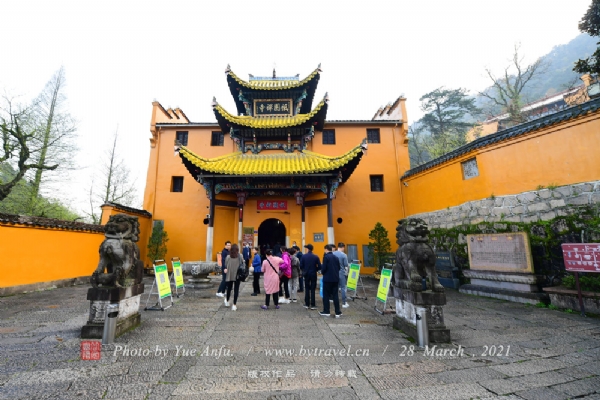
Chizhou Jiuhuashan Qiyuansi.
-
Jiuhua Mountain Welcome Inn: This charming inn is nestled close to the mountain trails and provides a serene retreat. Guests appreciate the tranquil environment and the friendly service, making it a popular choice for those seeking a peaceful getaway.
-
Qiyuansi Boutique Hotel: Located near the temple, this hotel offers modern amenities with a touch of traditional decor. Its location makes it convenient for early morning visits to the temple, allowing you to experience the spiritual ambiance before the crowds arrive.
-
Jiuhua Mountain Li Jingxuan Guesthouse: A quaint guesthouse that combines comfort with a homely atmosphere. It’s an excellent choice for travelers looking for an authentic local experience, complete with warm hospitality and personalized service.
-
Q+ Jiuhua Mountain Taibai Pavilion Resort: This resort is perfect for those seeking a more luxurious stay. With spacious rooms and stunning views of the surrounding mountains, it offers a blend of comfort and elegance, making it a great base for exploring the natural beauty of Jiuhuashan.
Whether you’re indulging in the local cuisine or enjoying the comfort of your accommodation, your time at Chizhou Jiuhuashan Qiyuansi will be enriched by these delightful experiences.
Frequently Asked Questions
-
What are the opening hours of Qiyuansi (祇园寺)?
Qiyuansi is open daily from 7:00 AM to 8:00 PM. Make sure to plan your visit within these hours to fully enjoy the temple and its serene surroundings. -
How much does it cost to enter Qiyuansi?
The entrance fee for Qiyuansi is approximately ¥160. It’s advisable to check for any group discounts or promotions that might be available before your visit. -
What is the historical significance of Qiyuansi?
Qiyuansi is one of the four major Buddhist temples in Jiuhua Mountain and holds great historical importance as it was established during the Ming Dynasty. It is known for its unique architecture and is a key site for Buddhist worship, especially dedicated to the Bodhisattva Kṣitigarbha (地藏菩萨). -
Are there any accommodation options nearby?
Yes, there are several hotels and guesthouses in the vicinity of Jiuhua Mountain, including options like Jiuhua Mountain Guesthouse and local homestays. It’s recommended to book your stay in advance, especially during peak travel seasons. -
Is there public transportation available to Qiyuansi?
Yes, visitors can access Qiyuansi via public transportation from nearby cities. Local buses and taxis frequently travel to Jiuhua Mountain scenic area, but it’s best to check the current schedules for any changes. -
What should I wear when visiting Qiyuansi?
Visitors are encouraged to wear comfortable clothing and sturdy shoes, as the temple is located on a mountain and involves walking on uneven terrain. Additionally, respectful attire is recommended in accordance with temple customs. -
Can I take photos inside Qiyuansi?
Photography is generally allowed in the temple grounds; however, it’s advisable to be respectful and avoid taking photos in areas where it may be prohibited, especially near worshippers or sacred objects. -
Are there dining options available at or near Qiyuansi?
Yes, there are dining options within the Jiuhua Mountain area, including local restaurants serving traditional Anhui cuisine. However, it’s advisable to check in advance for specific offerings, particularly if you have dietary restrictions.
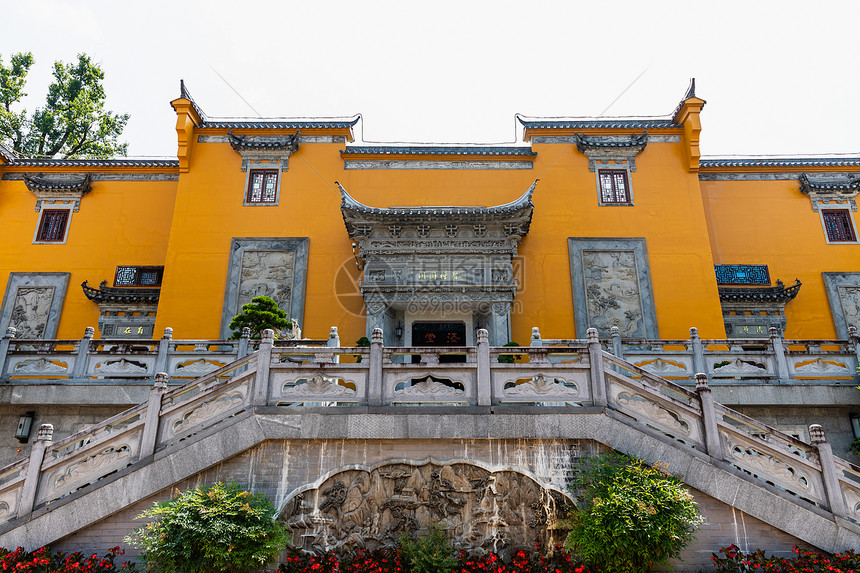
Chizhou Jiuhuashan Qiyuansi.
Final Thoughts on Your Trip
Visiting Chizhou Jiuhuashan Qiyuansi is not just a journey through a majestic mountain landscape; it is an invitation to reflect, rejuvenate, and connect with the spiritual heritage of Buddhism. This revered temple, rich in history and cultural significance, serves as a serene sanctuary where visitors can immerse themselves in the tranquility of nature and the profound teachings of the Buddha. As you wander through its ancient halls and admire its stunning architecture, take a moment to appreciate the harmony of the surroundings and the stories that echo within its walls.
With its breathtaking views and the compassionate spirit of the monks who call this place home, Jiuhuashan Qiyuansi offers a unique experience that transcends the ordinary. Whether you come seeking spiritual insight, a peaceful retreat, or simply the beauty of the natural world, this sacred site is sure to leave an indelible mark on your soul. Embrace the journey, for every step taken within this hallowed ground is a step towards enlightenment and inner peace, making Jiuhuashan a truly unforgettable destination.
